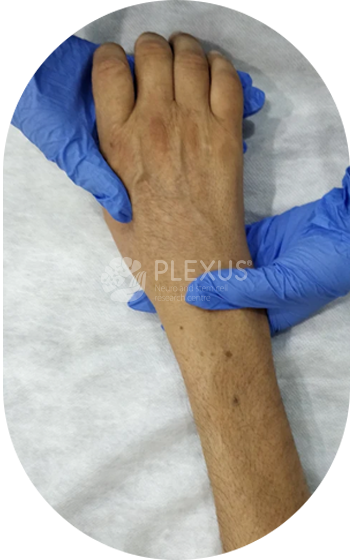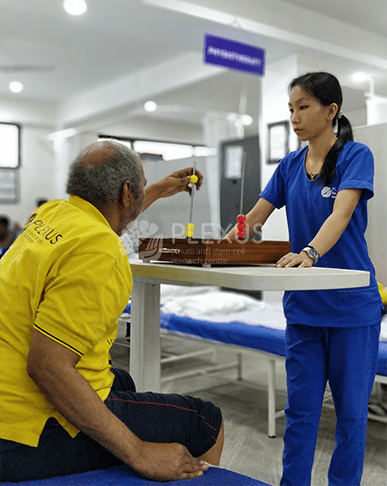- About Us
- Stem Cells
- Neurology
- Disorders
- Services
- All Therapies
- Regenerative Rehabilitation
- Rehabilitation for Stroke
- Rehabilitation for Spinocerebellar Ataxia
- Parkinson’s Disease Rehabilitation
- Multiple Sclerosis Rehabilitation
- Rehabilitation for Spinal Cord Injury
- Rehabilitation for Motor Neuron Disease
- Rehabilitation for Cerebral Palsy
- Brachial Plexus Injury rehabilitation
- Rehabilitation for Global Developmental Delay
- Childhood Disorders Clinic
- Outpatient Services
- Ask a question
- Request an appointment
- About Us
- Stem Cells
- Neurology
- Disorders
- Services
- All Therapies
- Regenerative Rehabilitation
- Rehabilitation for Stroke
- Rehabilitation for Spinocerebellar Ataxia
- Parkinson’s Disease Rehabilitation
- Multiple Sclerosis Rehabilitation
- Rehabilitation for Spinal Cord Injury
- Rehabilitation for Motor Neuron Disease
- Rehabilitation for Cerebral Palsy
- Brachial Plexus Injury rehabilitation
- Rehabilitation for Global Developmental Delay
- Childhood Disorders Clinic
- Outpatient Services
- Ask a question
- Request an appointment
Everything you need to know about Motor Neuron Diseases
Did you know that each time you speak to your friend, go for a long walk, or chew your favorite food, your motor neurons coordinate all the muscle activities in your body? They send electrical output signals to the muscles, urging them to function in a coordinated manner. This helps you perform daily tasks such as gripping, walking, speaking, swallowing, and breathing.

When any damage occurs to the Motor Neurons, they lead to a variety of Motor Neuron Diseases. Understanding the disease thoroughly can help you seek the best treatment and rehabilitation from our Plexus centers in Bangalore and Hyderabad.
Before we proceed, let’s understand what motor neurons are. Motor neurons are specialized nerve cells which are responsible for sending messages to your body so that you can move. There are two main types of motor neurons-
- Upper motor neurons are located in your brain. They send messages from there to your spinal cord.
- Lower motor neurons are located in your spinal cord. They transmit the messages sent from your brain to your muscles.

Decoding Motor Neuron Diseases
Motor Neuron Diseases is a group of neurodegenerative disorders that occur when the motor neurons of the body are damaged. It results in the progressive deterioration of voluntary muscles.
As nerve cells die when you have a motor neuron disease, electrical messages can’t get from your brain to your muscles. Over time, the muscles become extremely weak. You may hear a doctor or therapist call this “atrophy.” When this happens, you lose control over movements. It gets harder to walk, talk, swallow, and breathe.
When any damage occurs to these cells, they lead to a variety of Motor Neuron Diseases. Understanding the disease thoroughly can help you seek the best treatment and rehabilitation from our Plexus centers in Bangalore and Hyderabad.
Symptoms of Motor Neuron Diseases

Causes of Motor Neuron Diseases
There is no identifiable cause for Motor Neuron Diseases, and it is believed to be caused because of a combination of environmental, lifestyle, and genetic factors. Ongoing research has suggested the following causes:
- Toxins
- Environmental chemicals
- Viral infections
- Intense physical activity
- Loss of growth factors to developing motor neurons
- Mitochondrial dysfunction
- Oxidative injury to neuron
- Excessive excitability of neurons
Treatments for Motor Neuron Diseases
Stem Cell Therapy
01 Stem Cell Therapy
Stem Cell Therapy has shown great promise in its ability to slow down disease progression, by providing a nurturing microenvironment to improve the status of diseased motor neurons to slow down neurodegeneration as well as prevent neuronal death – all of which have the potential to increase lifespan and quality of life.
Physical Therapy
02 Physical Therapy
Patients with Motor Neuron Diseases often face problems in walking, maintaining balance, and moving their shoulders and hands. Many patients even complain of severe pain in their limbs, especially their shoulders and legs. Physical therapy can help them improve posture, prevent joint immobility, and slow muscle weakness and atrophy with the help of a planned regimen of stretching and strengthening exercises.
Occupational Therapy
03 Occupational Therapy
Occupational therapists help to maintain strength, improve endurance, manage fatigue, train hand functions, reduce risk of falls and fall-related injuries and foster independence in daily life tasks and community mobility through a combination of various activities and adaptations.
Speech Therapy
04 Speech Therapy
Speech and swallowing difficulties are common in patients with Motor Neuron Diseases. Speech therapists help to maintain communication and swallowing skills for as long as possible, manage symptoms, and adopt compensatory strategies for loss of function.
Our treatment program at Plexus
Our team uses a wide range of rehabilitation techniques to slow the progression of the disease and make it easier to manage the symptoms, including:
What our patients say
Aman Kumar (name changed)
I was experiencing weakness in my hands and legs for more than a year. No doctor could identify what I was exactly suffering from. I was put on Vitamin tablets. At Plexus Dr Na'eem Sadiq diagnosed me with Motor Neuron Disease and properly explained the condition to me. I have received Stem Cell Therapy along with rehabilitation services. I believe you will find the best Physiotherapy and Occupational therapy services at their centers. I have learnt all the exercises that I need to do and I am extremely positive that I have received the best form of treatment and at the right place."
Rahul Khanna (name changed)
“I came to Plexus for MND treatment. Dr Na’eem Sadiq understood my problem and gave me the best possible treatment. The staff was extremely friendly and the treating team is very knowledgeable. I would recommend all MND patients to visit Plexus and get treated. Thank you team."
FAQs answered
Our senses are usually not impaired by Motor Neuron Disease, so patients can still see, hear, taste, smell, and feel sensations. Although, some people can experience taste changes, skin hypersensitivity, or temperature regulation problems.
Bladder and bowel movements are also generally not affected by the disease. However, individuals with Motor Neuron Disease may find it difficult to use the washroom due to impaired mobility. Dehydration may also set in with reduced movements, leading to constipation. Motor Neuron Disease may also not affect their libido, however, sexual expression may become difficult due to lack of mobility.











